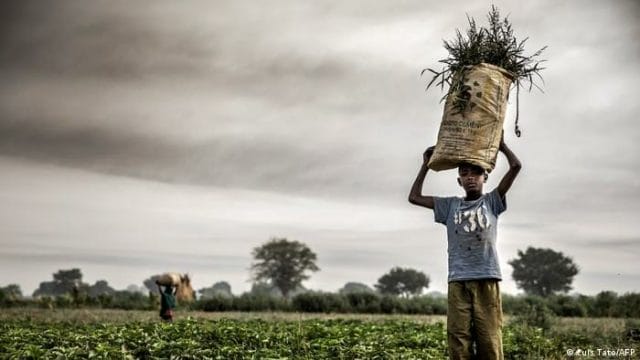At least 38 people are confirmed dead and scores of others were wounded in Sunday’s attack on a Catholic church in Owo in southwest Nigeria, according to the Catholic diocese of Ondo State, where the incident took place.
No group has claimed responsibility for the massacre and authorities have yet to identify the attackers, a police spokesperson told AP news agency.
Until Sunday’s attack, Ondo State was relatively peaceful.
But according to South Africa-based security expert Ryan Cummings, Ondo has been seeing growing tension between farmers, who are predominantly Christian, and pastoralists, who are mainly Muslim.
Confrontations between pastoralists and farmers
In August 2022, Ondo’s state government passed an anti-grazing bill that protected farmers and severely limiting the use of pastures by nomadic pastoralists.
These pastoralists are largely Fulani from the north, who have been pushed south by climate change and degradation of grazing lands.
“Within this context we’ve seen quite a significant upsurge in communal violence,” said Cummings, the director of the South African security risk management consultancy Signal Risk.
Farmers and pastoralists are forming armed militias and increasingly engaging in confrontations, he said.
The role of ethnicity and religion in this conflict remains unclear, however, with many analyst seeing a vicious cycle, whereby the conflict over land and other natural resources, such as water, fuels the enmity between the farmers and pastoralists. In turn, the ethnic and religious affiliation of those involved assume more significance as the violence increases.
Conflicts all over the country
Nigerian President Muhammadu Buhari condemned the church attack, calling it a “heinous killing of worshipers”.
Buhari promised to return peace to Nigeria during his electoral campaign, a promise the 79-year-old is far from fulfilling as he nears the end of his second, and final, term as president.
“Nigerians are certainly subject to an environment which one could qualify as deteriorating,” Cummings told DW.
The 12-year-long Boko Haram insurgency in the northeast continues abated. A splinter group, the Islamic State in West Africa Province (ISWAP), is making headway in the same region.
Criminal gangs called bandits, often affiliated with terrorist groups, are carrying out raids and mass kidnappings in the northwest and north-central parts of the country.
On top of this, the southeast is seeing a spate of killings and attacks carried out by separatist militants agitating to succeed from the rest of Nigeria.
Warnings of catastrophic food shortage
It is Nigeria’s civilians who are bearing the brunt of the violence.
The jihadist conflict in the northeast has killed 40,000 and displaced two million people so far.
It is also a major factor contributing to the region’s dire economic situation, which is now worsening because of Russia’s war against Ukraine.
A report released on Monday by the UN agencies World Food Program and Food and Agriculture Organization placed Nigeria among six nations threatened with “catastrophic” food shortages.
A major crude oil exporter, Nigeria is unable to profit from the current surge in fossil fuel prices to assuage its people’s hardships, security analyst Kabir Adamu said, with violence playing a role in cutting production.
And because Nigeria doesn’t refine its own oil, it is forced to import fuel at high prices, putting further strain on the battered economy, which in turn inflames the country’s various conflicts.
Violence could impact elections
Some have taken to social media to protest the ruling party All Progressive Congress’ (APC) alleged insensitivity to the suffering in Owo.
They accuse the APC of proceeding with “business as usual” in the face of the tragedy for failing to cancel a planned banquet to celebrate the nomination of a presidential candidate for the elections in February 2023.
The ACP started its primaries on Monday, a day after the attack.
On Wednesday the former Lagos State governor Bola Tinubu was chosen by ACP delegates to run for the presidency.
Security analyst Cummings believes that the flaring insecurity across Nigeria will impact the upcoming elections.
“The intensification of the insurgency in 2015 leading up to the general elections was one of the primary reasons that President Goodluck Jonathan wasn’t re-elected,” he said.
Then opposition candidate Buhari was a surprise winner of the 2015 polls.
“And, obviously, Buhari’s promise of bringing peace and stability to Nigeria was an issue that resonated with many voters,” Cummings added.
Armed groups are likely to use the elections to further their aims through disruption.
“I certainly think that moving into Nigeria’s election cycle we will see an uptick in violence,” Cummings said.








